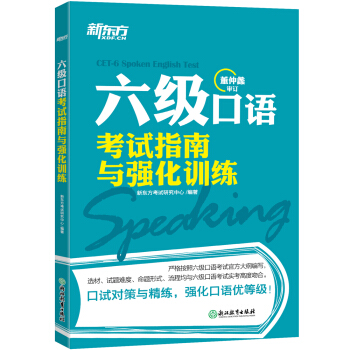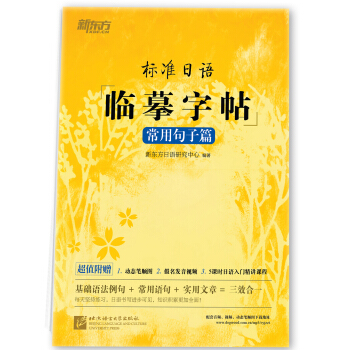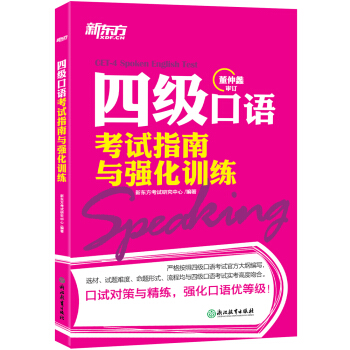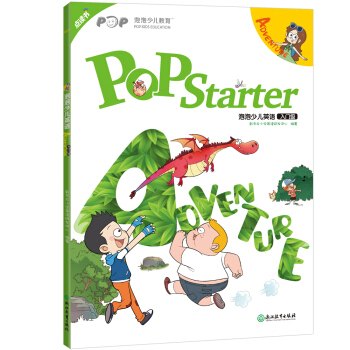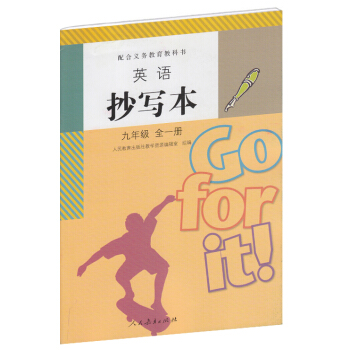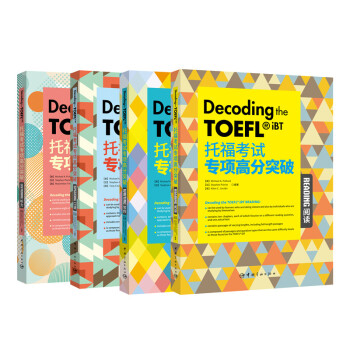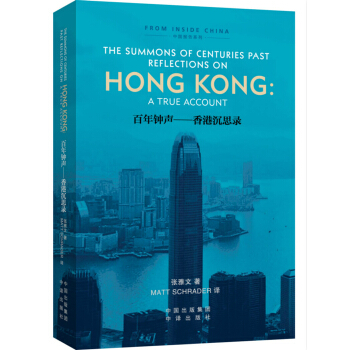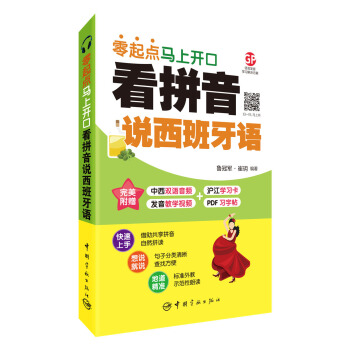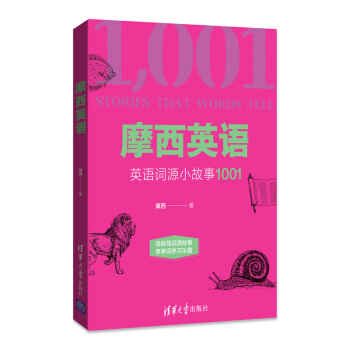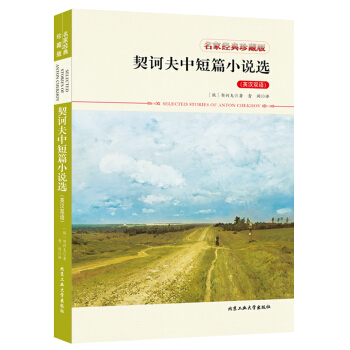

具体描述
编辑推荐
世界三大短篇小说巨匠之一幽默讽刺艺术大师作品精粹
反映小人物平凡生活的镜子
内容简介
《契诃夫中短篇小说选》短篇小说之王契诃夫一生创作了七八百篇短篇小说,作品大多取材子底层人民的平凡生活。收入本书的14个中短篇都是契诃夫的代表作,有的反映了小人物的悲惨生活,如《苦闷》、《万卡》;有的揭示了小人物为求生计而苦苦挣扎的无奈,以及战战兢兢、卑躬屈膝的心态和面貌。如《小官吏之死》、《胖子和瘦子》、《牡蛎》;有的鞭笞了见风使舵的奴颜媚骨,如《变色龙》;有的刻画了专制制度卫道士的嘴脸,如《普里什别叶夫中士》;有的揭露了专制制度对社会的压制及其保守和虚弱,如《套中人》;有的针砭了追求虚荣、庸俗无聊、鼠目寸光的人生哲学,如《跳来跳去的女人》、《挂在脖子上的安娜》、《醋栗》;有的揭示了专制制度下阴森可怕的俄国社会现状,如《六号病房》;有的表现了对美好生活的追求和憧憬,从而唤起人们对浑浑噩噩、半死不活的生活的厌恶,如《话说爱情》、 《没出嫁的新娘》。作者简介
安东·契诃夫(1860-1904),19世纪末期俄罗斯批判现实主义作家、短篇小说艺术大师。1879年进入莫斯科大学医学系。1884年毕业后在兹威尼哥罗德等地行医,广泛接触平民、了解生活,这对他的文学创作产生了深远影响。他和法国的莫泊桑、美国的欧?亨利并列为三大短篇小说巨匠。代表作有短篇小说《变色龙》、《万卡》、《套中人》等。译者:青闰(1965~),河南武陟人。本名宋金柱,常用笔名听泉、宣碧。现供职于焦作大学翻译中心。擅长双语互译。迄今已在外文出版社、译林出版社、上海交通大学出版社、东华大学出版社、大连理工大学出版社、中国宇航出版社等出版双语著作多部。另在《世界文学》《译林》《当代外国文学》《英语世界》等重要报刊发表译文和论文多篇。他翻译的原则是:“以雅俗共赏为基点,注重选材的广度、深度和科学性,整体把握字词句段篇,力求做到形声色味神的完美统一。”精彩书评
这是一个独特的巨大天才,是那些在文学史上和在社会情绪中构成时代的作家中的一个。——高尔基
契诃夫是一个“无与伦比的艺术家”,我撇开一切虚伪的客套肯定地说,从技巧上讲,他,契诃夫,远比我更为高明!
——列夫·托尔斯泰
目录
A Chameleon/变色龙 1Vanka/万卡 6
Misery/苦恼 12
Fat and Thin/胖子和瘦子 21
The Trousseau/嫁妆 24
The Death of a Clerk/小职员之死 32
The Lottery Ticket/彩票 36
A Wicked Boy/小坏蛋 43
The Orator/演说家 47
Oysters/牡蛎 52
The Beggar/乞丐 58
A Joke/玩笑 66
A Malefactor/预谋犯 72
Small Fry/小人物 78
The Chorus Girl/歌女 83
The Man in a Case/套中人 91
The Darling/宝贝儿 110
Anna on the Neck/脖子上的安娜 127
The Bet/打赌 145
The Beauties/美女 155
The Lady with the Dog/带小狗的女人 167
Lights/灯火 191
A Happy Ending/美妙的结局 243
Gooseberries/醋栗 250
The Swedish Match/瑞典火柴 265
At a Summer Villa/在夏日别墅里 295
Betrothed/未婚妻 303
精彩书摘
The police superintendent Otchumyelov is walking across the market square wearing a new overcoat and carrying a parcel under his arm. A red-haired policeman strides after him with a sieve full of confiscated gooseberries in his hands. There is silence all around. Not a soul in the square...The open doors of the shops and taverns look out upon God’s world disconsolately, like hungry mouths; there is not even a beggar near them.“So you bite, you damned brute?” Otchumyelov hears suddenly. “Lads, don’t let her go! Biting is prohibited nowadays! Hold her! Ah…ah!”
There is the sound of a dog yelping. Otchumyelov looks in the direction of the sound and sees a dog, hopping on three legs and looking about her, run out of Pitchugin’s timber-yard. A man in a starched cotton shirt, with his waistcoat unbuttoned, is chasing her. He runs after her, and throwing his body forward falls down and seizes the dog by her hind legs. Once more there is a yelping and a shout of “Don’t let go!” Sleepy countenances are protruded from the shops, and soon a crowd, which seems to have sprung out of the earth, is gathered round the timber-yard.
“It looks like a row, your honour...” says the policeman.
Otchumyelov makes a half turn to the left and strides towards the crowd. He sees the aforementioned man in the unbuttoned waistcoat standing close by the gate of the timber-yard, holding his right hand in the air and displaying a bleeding finger to the crowd. On his half-drunken face there is plainly written: “I’ll pay you out, you rogue!” and indeed the very finger has the look of a flag of victory. In this man Otchumyelov recognises Hryukin, the goldsmith. The culprit who has caused the sensation, a white borzoi puppy with a sharp muzzle and a yellow patch on her back, is sitting on the ground with her fore-paws outstretched in the middle of the crowd, trembling all over. There is an expression of misery and terror in her tearful eyes.
“What’s it all about?” Otchumyelov inquires, pushing his way through the crowd. “What are you here for? Why are you waving your finger...? Who was it shouted?”
“I was walking along here, not interfering with anyone, your honour,” Hryukin begins, coughing into his fist. “I was talking about firewood to Mitry Mitritch, when this low brute for no rhyme or reason bit my finger...You must excuse me, I am a working man...Mine is fine work. I must have damages, for I shan’t be able to use this finger for a week, may be...It’s not even the law, your honour, that one should put up with it from a beast...If everyone is going to be bitten, life won’t be worth living...”
“H’m. Very good,” says Otchumyelov sternly, coughing and raising his eyebrows. “Very good. Whose dog is it? I won’t let this pass! I’ll teach them to let their dogs run all over the place! It’s time these gentry were looked after, if they won’t obey the regulations! When he’s fined, the blackguard, I’ll teach him what it means to keep dogs and such stray cattle! I’ll give him a lesson! ...Yeldyrin,” cries the superintendent, addressing the policeman, “find out whose dog this is and draw up a report! And the dog must be strangled. Without delay! It’s sure to be mad... Whose dog is it, I ask?”
“I fancy it’s General Zhigalov’s,” says someone in the crowd.
“General Zhigalov’s, h’m...Help me off with my coat, Yeldyrin...it’s frightfully hot! It must be a sign of rain...There’s one thing I can’t make out, how it came to bite you?” Otchumyelov turns to Hryukin. “Surely it couldn’t reach your finger. It’s a little dog, and you are a great hulking fellow! You must have scratched your finger with a nail, and then the idea struck you to get damages for it. We all know...your sort! I know you devils!”
“He put a cigarette in her face, your honour, for a joke, and she had the sense to snap at him... He is a nonsensical fellow, your honour!”
“That’s a lie, Squinteye! You didn’t see, so why tell lies about it? His honour is a wise gentleman, and will see who is telling lies and who is telling the truth, as in God’s sight...And if I am lying let the court decide. It’s written in the law...We are all equal nowadays. My own brother is in the gendarmes...let me tell you...”
“Don’t argue!”
……
用户评价
翻开这本书的瞬间,我感受到的不是文字的堆砌,而是一种扑面而来的“生活本身”。契诃夫的笔触是如此的克制和精准,他从不滥用形容词,也不去刻意煽情,但正是这种冷静的叙述,让故事中的情感张力达到了极致。他描绘的那些场景,不是什么宏大的历史事件,而是一次次失败的约会、一场场无望的争吵、一次次在酒馆里借酒消愁的夜晚。这些琐碎,恰恰构成了我们大部分人的人生底色。 我尤其喜欢他塑造人物的那个“侧影”手法。你永远看不到人物内心全盘的剖析,你只能通过他们的对话、他们的犹豫、他们不经意间的一个动作,去拼凑出他们的灵魂碎片。这种开放式的解读空间,极大地调动了读者的参与感。每次读完一篇,我都会忍不住在脑子里给这些角色“续写”结局,想象他们如果换一种选择,生活会不会有片刻的喘息。这种阅读体验是极其独特的,它让你成为故事的共同创作者,而不是一个旁观者。对于想要领略真正“人道主义”文学精髓的人来说,这本书是绝佳的入门砖。
评分这本书的魅力,在于它的“适可而止”。契诃夫从不给你一个明确的道德评判,他只是铺陈事实,让你自己去面对那些人性的复杂和矛盾。读完《套中人》系列的故事,你会对那种被体制和习惯异化的人产生一种复杂的感情——既鄙夷其懦弱,又同情其身不由己。这种复杂性,是许多当代文学试图捕捉却常常用力过猛的东西,但在契诃夫这里,却是信手拈来。 我最欣赏的是,他总是能把一个宏大的社会问题,缩小到一个极其微观的、日常的场景中去展现,从而达到“见微知著”的效果。而且,双语版的设置,极大地拓宽了这本书的受众面。对于非母语的读者来说,它提供了一个绝佳的沉浸式学习环境,能够让你在享受文学熏陶的同时,自然而然地吸收地道的表达方式。总而言之,这是一本值得反复品味的书籍,每次重读,都会有新的感悟,它像一面镜子,映照出我们自己生活中那些被忽略的、却至关重要的瞬间。
评分哎呀,这本《契诃夫中短篇小说选(英汉双语)》可真是让我爱不释手。说实话,我原本对俄国文学是有点敬畏的,总觉得那玩意儿得配上厚厚的眼镜和一杯浓黑的咖啡才能读懂。但契诃夫的文字,就像是冬日里突然洒进房间的一束阳光,温暖却又带着一丝清冽的凉意。他的故事里,那些生活在社会底层的、郁郁不得志的小人物,每一个都活得那么真实,让人仿佛能闻到他们身上那股混杂着汗水、廉价香水和未竟梦想的气味。 比如其中一篇讲那位总是幻想自己能成为大人物的公务员,他一生的努力和挣扎,最终都化作了茶几上的一块掉漆的木头,那种荒诞感和深深的无力感,简直直击灵魂。我读完后,久久不能平静,开始反思自己生活中的那些“小小的悲剧”。最妙的是,这本书的双语对照简直是学习英语的好帮手。读完英文原版,再对照着中文译文,不仅能体会到文学的韵味,还能顺便把那些地道的俄式表达和英式翻译的微妙差异给摸索出来。这比单纯的枯燥的词汇书有意思多了,它让你在享受故事的同时,完成了知识的积累。那种感觉,就像是偷了个懒,却把正事给办了,简直是文青福音!
评分对于那些对文学抱有好奇心,却又害怕被“经典”劝退的新读者,我墙裂推荐这本选集。它的装帧设计很简洁大气,拿在手里阅读体验极佳,纸张的质感也很舒服,长时间阅读眼睛也不会感到疲惫。内容上,契诃夫的叙事技巧简直是教科书级别的示范。他擅长在极短的篇幅内,建立起一个完整的世界观和人物关系网,毫不拖泥带水。 例如,一篇小说可能仅仅描写了一个家庭在某个夏日午后因为一件小事而爆发的争吵,但你却能从中看到整个家族的兴衰、阶层的固化以及个体命运的无奈。他的对话充满了潜台词,那些没有说出口的话,往往比说出来的更具杀伤力。这种对人类心理的洞察力,即使放在今天来看,也丝毫不显过时。它让我重新审视自己与身边人的沟通方式,思考我们之间到底隔着多少未被言说的鸿沟。读完后,你会发现,原来最深刻的表达,往往来自最克制的笔触。
评分说实话,我购买这本书最初是带着一种“完成任务”的心态,毕竟契诃夫是绕不开的文学高峰。但当我真正沉浸其中时,才发现这哪里是任务,分明是一场温柔的“心灵疗愈”。这本书的选篇非常精到,没有选择那些过于晦涩难懂的长篇,而是聚焦于那些篇幅适中、意境深远的中短篇,节奏感把握得非常好。你可以在一个下午读完三篇,然后被那种淡淡的忧伤笼罩着,思考人生的虚妄。 这种忧伤不是绝望,而是一种更高级的、带着理解和包容的惆怅。契诃夫似乎在说:“是的,生活就是这样,充满了不如意,但你依然要体面地活着。”这种哲思的深度,是通过那些看似平淡无奇的乡村医生、失业的教师或者迷失的贵族女性身上体现出来的。尤其是双语排版,让我得以直接对比中文译者是如何捕捉到那种微妙的俄式幽默和讽刺的。有些翻译的妙处,只有对照原文才能体会,那种翻译的“再创造”过程本身,就构成了一种别样的阅读乐趣。
评分这次活动很给力,精挑细选呢给娃囤了挺多书的,书的品质也很好,正版无疑。快递也很好,希望京东一直能这样下去。
评分经常在京东上买书,已经成为一种习惯了,喜欢它物流快,书也是正版的,售后服务也不错,而且还经常有优惠,支持京东
评分历史记载书,不但让我们了解尘封已久的往事,也交给我们许多人生道理。
评分一次性买了10本书,很便宜~赞??
评分书还不错,给个好评先,好好读一读。
评分很不错的的书值得拥有
评分快递速度非常快,质量也非常好,包装完整,就等我的新书架到了,慢慢看啦。。。。
评分契诃夫的小说,值得用心读。中英双语,比较便宜。
评分经常上京东买书,这次又买了一大箱,一百块钱都不到,这家出版社的书质量不错,我很喜欢,不过双语读本的排版,我更喜欢西安交通大学出版社的排版,读起来方便呀!
相关图书
本站所有内容均为互联网搜索引擎提供的公开搜索信息,本站不存储任何数据与内容,任何内容与数据均与本站无关,如有需要请联系相关搜索引擎包括但不限于百度,google,bing,sogou 等,本站所有链接都为正版商品购买链接。
© 2026 windowsfront.com All Rights Reserved. 静流书站 版权所有


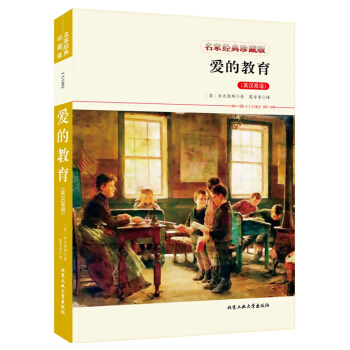
![鲁滨逊漂流记(买中文版全译本赠英文原版 套装共2册) [Robinson Crusoe] pdf epub mobi 电子书 下载](https://pic.windowsfront.com/12222444/59682aa8N6d0bf337.jpg)


